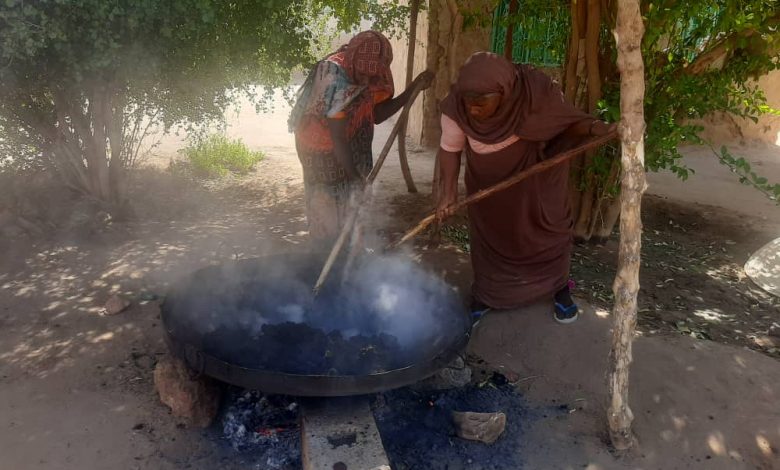Its Preparations (Abri and Sorge) Drinks with a Sudanese Patent

Sudan Events – Magda Hassan
Many Sudanese cities witnessed the intensification of preparations for the blessed month of Ramadan, carrying out traditional and inherited Sudanese rituals, such as making the drink (Abri ) and (Sorge).
Sudanese drinks par excellence, which consist of local products made by women.
The Sudanese also call the apri (sweet bitter) because of its taste that alternates between sweetness and fashion.
Abri and sorghum are similar in ingredients and differ in the method of preparation. The Ramadan drink consists of (Zariyah), the process of replanting corn, then drying it, grinding it, and adding it to another type of flour.
It is made from the ingredients (a strong porridge) that is divided into a bucket and fermented for three days or according to the temperature of the weather, then spices are added to it: ginger, cinnamon, cloves or (red oud), black cumin and fenugreek.
Sudanese warriors witnessed the appearance of expected symptoms (Sorge), which is a day of participation that moves from one house to another in which the women of the neighborhood address the owner of the day.
The women talked about the history of the market and the needles, the secret of naming, their benefits, and harvesting from them.
Hajja Fatima Abdel Rahim, or Fatima Bashir, named after her husband, known as him in the Dim al-Qaray area, north of Shindi, stressed her origins from the areas of Taiba al-Khoud and Jabal, west of Shindi.
She said that she found drinks and their names among the inheritances. But according to her, it has high nutritional value, helps the fasting person endure thirst and supports his body with corn components. Hajj Fatima said that the sorg needs (seed) like needles, and she prepares it on a (sinking) baking tray with water equal to the amount of corn, so the flour is watered after it boils and the dough is made, which consumes a lot of firewood until it is cooked, then in trays until it cools, then it is placed in a large pot.
The fermentation stage lasts for three days, and the aforementioned spices are added gradually, then the final preparation day (Awasa) comes.
The last stage in the sorghum will be made into clumps with the hands to facilitate its drying.
It will then be placed on beds furnished for air to dry and then preserved.
As for the needles, they are done (Awasa) in the Kasra method and then applied to the openings (tarakahs) to dry and wet very clearly.
Hajja Fatima says that the sorghum has the advantage over the needles in that it can be wetted.
Twice, but the needle also has the advantage of being easy to wet, as it does not require a long time.
Sudanese Ramadan drinks are characterized by a strong smell, particularly during the preparation ritual.
It has a fragrant scent and invites those who smell it, O Allah ,let us reach the month of Ramadan safely and make us among those who fast.



